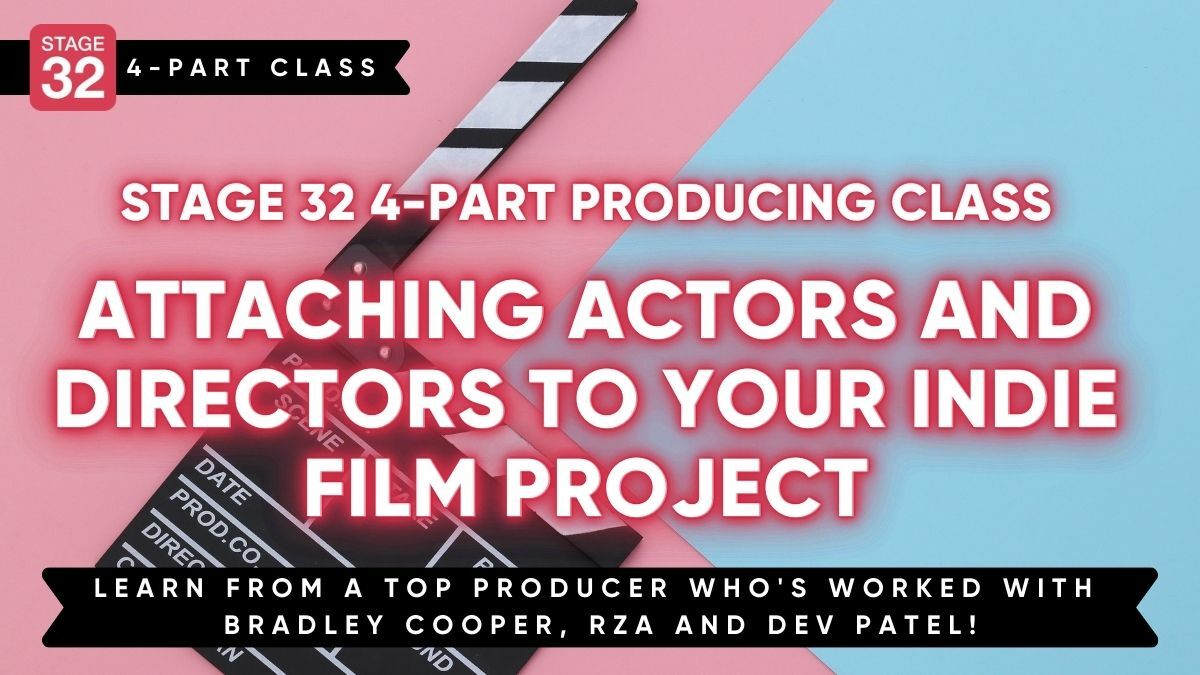I see Working With Actors being the central skill that every director has to master in order to create and effective and engaging film. The story lives in the characters and it from my experience as an actor I can see that for many directors this is the single most frightening part of the directing process. Why is that? One would think that every director would want to hone and sharpen his/her skills working with actors and yet so few do. They spend a lot of time with cameras, technology and searching for their next job. As a teacher and coach of directing it is clear to me that many directors are intimidated by actors and the challenge of working with them for two reasons, 1. they don't know how to articulate what they want and, 2. they have not acquired the skills of communicating with actors, they don't understand the actor's language. Too many directors end up giving those dreaded results and pray that the actor understands and will deliver something close to their vision. I would love to hear thoughts from other directors and actors on this subject.



1 person likes this
I agree and would add that I have worked with Directors who have struggled to communicate what they are trying to get out of me and who seem afraid to just tell me, probably because Actors are always ruminating in our emotions, but me personally, I'm really just dying for the Director to just Say It hahaha! It's a tumultuous occurrence when everyone is trying to figure out what everyone is thinking when we're all experiencing the same pressure from the time/money crunch. I think learning the language of Actors is a muscle that has to be worked to develop like any other, but that would require time of its own and Time is kinda the Unicorn of the Creative's world lol. And it would take being willing to risk offending and maybe overworking the Actor in some cases. Everyone has to be down for exploration and that's not always the case right. Anyways, I think as long as you speak from a good place in your heart you can tell people good or learnable feedback and they will respond and I hope more Directors latch on to communicating more with us. Personally speaking I'd love that.
Well, you seem to have already made your mind up, so there's not much to remark on.
Thanks for the Comments.
Soco, I hope all is going well with your short film, I'd like to hear more. And you are very right about the strain between actors and directors. That is why I am so intrigued about this delicate and dynamic relationship.
C. D-broughton, Truth is I haven't made up my mind, but I do know what seems to be working and what seems to be thwarting the process. I would really love to hear your thoughts and ideas.
2 people like this
I’ve worked with hundreds and hundreds of directors. The central skill they all need, and that the best exhibit the most skill at, is to tell a cinematic story. Actors are one part of the story telling process. If actors are the most important, then which of the other myriad players involved in the making of a picture that tells a cinematic story barely count? Not a trite question. Directors have personal approaches, adapting and molding their approach to their picture, spending time collaborating with contributors to hone the telling of the story and spending time where needed to pull the best performance from everyone involved in making the motion picture. Everyone on the set adapts to the director as quickly as possible, not the other way ‘round. We must all understand the individual Director’s personal language and translate it for our individual needs to achieve the best cinematic story. Expecting any director to be an expert in all areas is unrealistic but knowledge of all the areas is a bonus with the cautionary proviso that a little knowledge is indeed dangerous. Expecting a Director to understand and communicate in an actor’s language is an interesting request as I wasn’t aware that all actors are trained in exactly the same way thus have different languages. Should the director then have a translator to talk to actors from different schools of acting? Sorry but actors are not who the picture revolves around as a motion picture must unfailingly revolve around the Director and the story that Director is telling.
1 person likes this
Successful relationships depend on choosing agreement over expectation. Making this distinction I think can really empower a director. When we have expectations of others we often end up disappointed, and when we have expectations held over us we feel stifled and unexpressive. The hierarchical systems in filmmaking leave many unable to think outside of this box, but powerful communicators strive for agreements that leave everyone free to perform optimally. Steve Chandler explains it best in his succinct audio clip https://www.box.com/s/8e86836b244bee19323a
2 people like this
Caitlin could you tell me how you see a Director implementing negotiations leading to an agreement on the set. How often would this be done; daily, hourly, or every time a decision is made on the set? Who would be negotiated with; a select group or every person? I'm curious about your suggesting using the method that this motivational speaker is pitching.
1 person likes this
well. a lot of actors can try to play director instead of doing their job is part of the trouble. the other part is lack of organization and people skills.
3 people like this
Only a weak/inexperienced Producer or Director would allow the actor to muscle in and start calling the shots. They were never really in charge of the shoot to start with, the actor saw this and exercised the opportunity presented. The crew then suffers for the ineptitude of the "above the line" team.